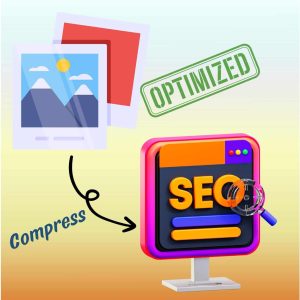On-page Search Engine Optimization (SEO) determines whether your content ranks on page one or disappears into obscurity. Every element you control directly on web pages, from title tags to content structure, influences how Google evaluates and positions your site in search results.
This guide reveals which on-page factors genuinely move rankings based on real-world testing, algorithmic updates, and verified Google guidance. You’ll learn precisely where to invest effort for maximum return.
What On-Page SEO Really Means Today


On-page Search Engine Optimization (SEO) encompasses every optimization element you control directly within website pages to improve search visibility and rankings. Modern on-page SEO extends beyond simple keyword placement to include content quality, user experience signals, semantic relevance, and technical HTML implementation that Google’s algorithms analyze for relevance and authority.
Mastering on-page factors provides complete control over how search engines interpret and rank your content, forming the foundation upon which all other SEO efforts build.
What Is On-Page SEO and How It Impacts Google Rankings
On-page SEO is a practice involving all optimization elements you implement directly within website pages to improve search visibility. These elements include content quality, keyword placement, HTML tags, internal links, and user experience signals.
Google’s algorithms analyze hundreds of on-page signals to determine relevance, quality, and user satisfaction. Pages with strong on-page optimization typically outrank competitors even with fewer backlinks you win by controlling what search engines see and understand about your content.
Search Engine Optimization (SEO) success starts with on-page foundations. Weak on-page elements sabotage even powerful link-building campaigns.
How On-Page SEO Differs From Technical SEO and Off-Page SEO
On-page SEO focuses on content and HTML elements visible to users and crawlers. Technical SEO addresses site infrastructure: crawlability, indexation, site speed, and structured data. Off-page SEO involves external signals like backlinks and brand mentions.
You control 100% of on-page factors. Technical SEO requires development resources. Off-page SEO depends on external publishers.
Understanding these boundaries helps prioritize work. Fix on-page issues first before investing in link acquisition. Strong on-page optimization maximizes value from every backlink earned.
How Google Evaluates On-Page Ranking Signals
Google uses Natural Language Processing (NLP) to understand content meaning, context, and relationships between topics. Algorithms analyze semantic patterns, entity recognition, and topical depth rather than simple keyword matching.
RankBrain, BERT, and MUM process content like humans read paragraphs, not robots counting keyword density. Google evaluates whether content comprehensively answers search queries and satisfies user intent.
Core ranking systems include Helpful Content System, which rewards original research and first-hand experience. Google states helpful content is “created for people, not search engines” (Google, 2024). Pages written primarily for rankings get demoted.
Common On-Page SEO Myths Beginners Should Avoid
Many beginners waste time on outdated tactics that no longer influence rankings or harm performance.
Myth 1: Keyword density matters. Google moved beyond density calculations years ago. Natural language and semantic relevance replaced mechanical keyword counting.
Myth 2: Meta keywords tags help rankings. Google stopped using meta keywords for rankings in 2009. Focus energy elsewhere.
Myth 3: More content always ranks better. Length alone doesn’t improve rankings. Comprehensive, intent-matching content outperforms fluff. A 1,000-word guide answering queries precisely beats a 5,000-word article filled with tangents.
Myth 4: H1 tags guarantee rankings. Proper heading structure improves crawlability and user experience but doesn’t override poor content quality or weak relevance.
Content Quality Factors That Have the Highest Ranking Impact
Content quality represents the single most influential ranking factor, determined by how comprehensively pages satisfy search intent through topical depth, semantic coverage, and Experience, Expertise, Authoritativeness, and Trustworthiness (E-E-A-T) signals. Google’s Natural Language Processing (NLP) algorithms evaluate whether content demonstrates first-hand experience, covers topics thoroughly with accurate information, and provides genuine value beyond generic advice copied from competitors.
Pages delivering exceptional quality consistently outrank competitors with stronger backlink profiles because Google prioritizes user satisfaction above external signals.
Search Intent Optimization: Matching Content to User Needs
Search intent represents what users genuinely want we rank by giving searchers exactly what they need. Google categorizes intent into four types: informational, navigational, commercial, and transactional.
Analyze top-ranking pages for target queries to decode intent. Informational queries require comprehensive guides. Commercial intent demands product comparisons and reviews. Transactional searches need clear conversion paths.
Mismatched intent destroys rankings faster than any other factor. A product page targeting “how to” queries fails regardless of optimization quality. Google recognizes intent misalignment through engagement metrics like bounce rate and dwell time.
Test intent alignment by examining Search Engine Results Pages (SERPs). Identify formats, content angles, and word counts competitors use. Match patterns while adding unique value through better explanations, examples, or data.
Topical Depth and Semantic Coverage (Entities & Context)
Topical depth refers to comprehensive coverage of subjects and related subtopics within content. Google rewards pages demonstrating thorough understanding rather than surface-level explanations.
Entity-based SEO focuses on people, places, concepts, and things Google recognizes as distinct objects. Cover related entities naturally throughout content to establish topical authority.
Semantic coverage involves including synonyms, variations, and contextually related terms. Google’s NLP understands “automobile,” “vehicle,” and “car” represent the same concept. Vary language naturally instead of repeating exact keywords.
Build topical depth by answering related questions users ask. Analyze “People Also Ask” boxes and “Related Searches” for semantic expansion opportunities. Include supporting subtopics strengthening main arguments.
Content Freshness, Accuracy, and Update Signals
Google’s Freshness algorithm prioritizes recently published or updated content for time-sensitive queries. News, trends, and evolving topics require current information.
Update existing content regularly to maintain rankings. Add new sections, refresh statistics, and remove outdated information. Signal updates through visible “Last Updated” timestamps and structural improvements.
Accuracy builds trust with users and search engines. Verify facts, cite authoritative sources, and correct errors immediately. Inaccurate information damages Experience, Expertise, Authoritativeness, and Trustworthiness (E-E-A-T) signals.
Freshness matters most for Query Deserves Freshness (QDF) topics: current events, seasonal content, and frequently changing subjects. Evergreen topics like “photosynthesis process” prioritize depth over recency.
E-E-A-T Signals: Experience, Expertise, Authority, Trustworthiness
Experience, Expertise, Authoritativeness, and Trustworthiness (E-E-A-T) represent quality signals Google evaluates through multiple on-page indicators. Strong E-E-A-T separates authoritative content from low-quality pages.
Experience demonstrates first-hand knowledge. Include personal case studies, original research, and unique insights competitors lack. Generic advice copied from competitors fails Experience requirements.
Expertise shows subject mastery through detailed explanations, technical accuracy, and comprehensive coverage. Author credentials strengthen expertise signals when displayed prominently.
Authoritativeness develops through consistent publishing, citation by other sites, and recognition within industries. Build authority by becoming go-to resources for specific topics.
Trustworthiness requires transparency about authors, sources, and methodologies. Display contact information, privacy policies, and clear content ownership. Cite reputable sources and avoid misleading claims.
Keyword Optimization Factors That Still Matter in 2025
Strategic keyword placement in title tags, H1 headings, URLs, and opening paragraphs signals topical relevance to Google’s algorithms without compromising natural readability or triggering over-optimization penalties. Modern keyword optimization focuses on semantic relationships, synonyms, and Natural Language Processing (NLP) patterns rather than mechanical keyword density calculations that search engines abandoned years ago.
Balancing primary keyword placement with semantic variations creates content that ranks well while maintaining user-focused quality standards Google rewards through algorithmic evaluation.
Primary Keyword Placement (Title, H1, URL, First 100 Words)


Primary keywords belong in specific locations where Google expects to find them. Strategic placement signals topic relevance without over-optimization.
Place primary keywords in title tags near the beginning. Titles like “On-Page SEO Factors: Ranking Guide” outperform “Complete Guide to On-Page SEO Factors” because important keywords appear first.
Include primary keywords naturally within H1 headings. H1 tags tell Google what pages cover. Match search queries closely while maintaining readability.
Add primary keywords to URLs using hyphens between words. Clean URLs like “domain.com/on-page-seo-factors” perform better than “domain.com/page?id=12345”. Keep URLs under 60 characters for optimal performance.
Mention primary keywords within opening paragraphs, ideally the first 100 words. Early mentions confirm topical relevance to algorithms and users.
Semantic Keywords, Synonyms, and NLP Optimization
Semantic keywords represent terms related to primary topics without being exact matches. Google’s NLP connects semantically related concepts, rewarding natural language over keyword stuffing.
Identify semantic keywords by analyzing top-ranking competitor content. Tools like Google’s “Related Searches” reveal terms algorithms associate with topics. Include these naturally throughout content.
Use synonyms to avoid repetitive phrasing. “Optimize,” “enhance,” and “improve” convey similar meanings. Varied vocabulary sounds natural to readers while satisfying algorithmic expectations.
Long-tail variations capture specific search intents. Users searching “how to optimize title tags for mobile” want different information than “title tag best practices.” Address variations within comprehensive content.
Keyword Cannibalization and How to Fix It
Keyword cannibalization occurs when multiple pages target identical queries, causing them to compete against each other. Google struggles to determine which page to rank, often demoting all competing pages.
Identify cannibalization through Search Console. Check which pages rank for target queries. Multiple pages ranking indicates cannibalization issues.
Fix cannibalization through three approaches: firstly, consolidate similar content into comprehensive guides; secondly, differentiate page focus to target distinct intents; thirdly, implement canonical tags directing search engines to preferred versions.
Use internal linking to establish hierarchy. Link from weaker pages to authoritative cornerstone content, signaling preferred ranking pages to Google.
Keyword Optimization vs Over-Optimization (Penalty Risks)
Over-optimization occurs when pages prioritize search engines over user experience. Google’s algorithms detect and penalize manipulative tactics.
Avoid keyword stuffing, unnaturally repeating keywords to manipulate rankings. Modern algorithms recognize forced repetition and devalue content accordingly. Write for humans first.
Skip exact-match anchor text for every internal link. Vary anchor text naturally using synonyms, branded terms, and contextual phrases. Patterns suggesting manipulation trigger algorithmic scrutiny.
Don’t hide keywords using white text, tiny fonts, or CSS tricks. These techniques violate Google’s spam policies and result in manual penalties.
Balance optimization with readability. Keywords belong in strategic locations but shouldn’t compromise content quality or natural flow. Users abandon poorly written pages regardless of keyword placement.
HTML & Page Structure Factors That Influence Rankings
Proper HTML structure using optimized title tags, hierarchical heading tags (H1–H6), descriptive internal linking, and image optimization creates clear signals helping Google understand content organization and topical relationships. Well-structured pages improve crawlability, distribute authority effectively through internal link architecture, and enhance user experience through logical information hierarchy that both algorithms and visitors navigate easily.
Each structural element, from meta descriptions improving Click-Through Rate (CTR) to alt text providing image context, contributes to comprehensive on-page optimization that elevates rankings.
SEO-Optimized Title Tags and Meta Descriptions (CTR Impact)
Title tags remain among the most influential on-page ranking factors. Google uses titles to understand page topics and displays them as clickable headlines in search results.
Craft titles between 50 to 60 characters (500 to 600 pixels). Longer titles get truncated, hiding important information from searchers. Front-load primary keywords while maintaining readability.
Write compelling meta descriptions between 150 to 160 characters. Descriptions don’t directly influence rankings but improve Click-Through Rate (CTR), which sends positive engagement signals to Google.
Include unique titles and descriptions for every page. Duplicate metadata confuses search engines and wastes opportunities to match diverse search intents. Treat each page as distinct content requiring custom optimization.
Test emotional triggers in titles. Power words like “proven,” “complete,” and “essential” increase CTR. Numbers and brackets also improve performance: “7 On-Page SEO Factors [2025 Guide]” outperforms generic alternatives.
Proper Use of H1–H6 Headings for Content Hierarchy
Heading tags structure content hierarchically, helping Google understand relationships between sections and subtopics. Proper heading hierarchy improves crawlability and user experience.
Use one H1 per page, clearly identifying main topics. Multiple H1 tags confuse hierarchical signals. H1 headings typically match or closely resemble title tags.
Implement H2 headings for major sections dividing content into logical chunks. H2 tags signal primary subtopics supporting H1 themes.
Nest H3 through H6 headings under parent headings, creating clear hierarchical structure. H3 tags subdivide H2 sections. H4 tags break down H3 content further. Maintain logical nesting throughout.
Include keywords naturally in headings without forcing placement. Headings guide both users and crawlers through content. Prioritize clarity over optimization.
Internal Linking Structure and Anchor Text Optimization
Internal linking connects related content within websites, distributing authority and helping Google discover pages. Strategic internal linking strengthens topical clusters and improves rankings.
Link from high-authority pages to newer content requiring ranking boosts. Authority flows through links, elevating connected pages in search results.
Use descriptive anchor text clearly indicating linked page topics. “Learn about keyword research strategies” outperforms vague phrases like “click here.” Descriptive anchors improve accessibility and SEO simultaneously.
Build topical clusters linking pillar content to supporting subtopic pages. Hub-and-spoke structures demonstrate topical authority. Comprehensive pillar pages linking to detailed subtopic articles signal expertise to Google.
Avoid excessive internal linking, too many links dilute value. Focus on 3 to 5 highly relevant internal links per 1,000 words. Quality beats quantity.
Image SEO: Alt Text, File Names, and Image Context


Images improve user engagement but require optimization for search visibility. Google Image Search drives significant traffic for optimized visuals.
Write descriptive alt text explaining image content for accessibility and SEO. Alt text helps visually impaired users understand images and provides context to search engines. Keep descriptions under 125 characters.
Rename image files before uploading. Descriptive filenames like “on-page-seo-checklist.jpg” outperform generic names like “IMG_0042.jpg.” Use hyphens between words for readability.
Surround images with relevant text providing context. Google analyzes content near images to understand relationships between visuals and topics. Place images logically within related sections.
Compress images to reduce file sizes without sacrificing quality. Large images slow page speed, harming user experience and rankings. Tools like TinyPNG or WebP conversion maintain quality while reducing sizes by 50% to 70%.
User Experience Signals That Directly Affect On-Page SEO
User experience metrics including Core Web Vitals (Largest Contentful Paint, Cumulative Layout Shift, Interaction to Next Paint), mobile-first optimization, and engagement signals directly influence rankings as Google prioritizes pages delivering fast, stable, and responsive experiences. Pages loading quickly on mobile devices, maintaining visual stability during rendering, and generating strong engagement through low bounce rates and high dwell time receive ranking advantages over slower, poorly optimized competitors.
Optimizing user experience requires technical improvements like image compression, browser caching, responsive design, and content delivery networks that transform page performance from liability to competitive advantage.
Core Web Vitals Explained for Beginners (LCP, CLS, INP)
Core Web Vitals measure page experience through three metrics: Largest Contentful Paint (LCP), Cumulative Layout Shift (CLS), and Interaction to Next Paint (INP). Google confirmed Core Web Vitals as ranking factors in 2021.
Largest Contentful Paint (LCP) measures loading performance. LCP tracks how long main content takes to load. Good LCP occurs within 2.5 seconds (2,500 milliseconds). Optimize by reducing server response times, eliminating render-blocking resources, and compressing images.
Cumulative Layout Shift (CLS) quantifies visual stability. CLS measures unexpected layout shifts during page loading. Target scores below 0.1. Fix by specifying image dimensions, avoiding dynamic content insertion above existing content, and using font-display properties.
Interaction to Next Paint (INP) replaced First Input Delay (FID) in 2024, measuring responsiveness. INP tracks time from user interactions to visible page updates. Aim for INP under 200 milliseconds (0.2 seconds). Improve by minimizing JavaScript execution, breaking up long tasks, and optimizing event handlers.
Mobile-First Optimization and Responsive Design
Google’s mobile-first indexing uses mobile versions of content for ranking and indexing. Desktop-only optimization no longer suffices, mobile performance determines rankings.
Implement responsive design adapting layouts to different screen sizes. Responsive sites maintain consistent content across devices while optimizing display for viewports from 320 pixels to 1920 pixels wide.
Test mobile usability through Google’s Mobile-Friendly Test tool. Identify issues like text too small, clickable elements too close, and content wider than screens.
Optimize tap targets to minimum sizes of 48 pixels by 48 pixels (approximately 9 millimeters). Small buttons frustrate mobile users and increase bounce rates.
Prioritize mobile page speed. Mobile users expect fast loading on slower connections. Compress images aggressively, minimize code, and leverage browser caching for mobile visitors.
Dwell Time, Bounce Rate, and User Engagement Signals
User engagement metrics indicate content quality and relevance. Google analyzes behavioral signals to validate ranking decisions.
Dwell time measures how long users stay on pages before returning to search results. Longer dwell time suggests content satisfies search intent. Improve dwell time by delivering immediate value, using engaging formats, and structuring content for scannability.
Bounce rate tracks single-page sessions where users leave without interaction. High bounce rates signal irrelevance or poor user experience. Reduce bounces by matching search intent, improving page speed, and providing clear navigation.
Engagement signals include scroll depth, video plays, and button clicks. Pages generating strong engagement receive ranking boosts. Encourage interaction through embedded media, interactive elements, and clear calls-to-action.
Note: Google’s John Mueller stated engagement metrics aren’t direct ranking factors (Mueller, 2022). However, user behavior influences rankings indirectly through satisfaction signals and return visits.
Page Speed Optimization Best Practices (Real-World Fixes)
Page speed directly impacts user experience and rankings. Google’s Speed Update (2018) made mobile speed a ranking factor. Slow sites lose visitors and rankings simultaneously.
Minimize HTTP requests by combining files, using CSS sprites, and reducing plugins. Each request adds latency. Fewer requests mean faster loading.
Enable browser caching storing static resources locally. Cached resources load instantly on repeat visits. Set cache expiration dates weeks or months ahead for stable assets.
Compress HTML, CSS, and JavaScript files using Gzip or Brotli compression. Compression reduces file sizes by 60% to 80%, significantly improving transfer speeds.
Implement lazy loading for images and videos below the fold. Lazy loading delays resource loading until needed, prioritizing above-the-fold content. Users see important content faster.
Use Content Delivery Networks (CDNs) distributing content across global servers. CDNs serve resources from locations nearest to users, reducing latency from 200 milliseconds to 20 milliseconds for international visitors.
Upgrade to modern hosting infrastructure with solid-state drives and adequate resources. Shared hosting creates bottlenecks. Virtual Private Servers (VPS) or dedicated hosting improve performance for growing sites.
Conclusion
On-page SEO remains the foundation of search visibility in 2025. Rankings depend on controllable factors: content quality matching intent, strategic keyword placement, proper HTML structure, and excellent user experience.
Prioritize search intent above all else. Create comprehensive content addressing user needs through topical depth, semantic coverage, and E-E-A-T signals. Implement technical best practices including optimized title tags, heading hierarchy, internal linking, and Core Web Vitals improvements.
Success comes from consistent application of proven strategies rather than chasing algorithmic shortcuts. Master fundamentals before pursuing advanced tactics. Start by auditing existing content against factors covered here, then systematically improve pages targeting valuable search queries.
Frequently Asked Questions
Q1: What is the most important on-page SEO factor in 2025?
Content quality matching search intent remains the single most influential on-page factor. Google’s algorithms prioritize pages comprehensively answering user queries with accurate, well-structured information. Technical optimization and keywords matter, but they amplify quality rather than replacing substance.
Q2: How many keywords should be included per page?
Focus on one primary keyword and 3 to 5 semantic variations per page. Modern SEO prioritizes topical coverage over keyword quantity. Natural language incorporating related concepts outperforms pages stuffed with keyword variations. Let content dictate keyword inclusion rather than forcing arbitrary targets.
Q3: Do meta descriptions affect rankings directly?
No, meta descriptions don’t directly influence rankings according to Google. However, compelling descriptions improve CTR from search results, which sends positive engagement signals to algorithms. Write descriptions for users first, incorporating keywords naturally to match search queries.
Q4: How often should existing content be updated?
Update content every 6 to 12 months for competitive topics requiring current information. Evergreen topics need less frequent updates unless information becomes outdated. Monitor rankings and traffic, declining performance signals update needs. Add new sections, refresh statistics, and improve explanations during updates.
Q5: What is keyword cannibalization and how does it hurt rankings?
Keyword cannibalization happens when multiple pages compete for identical search queries, confusing Google about which page to rank. This typically results in lower rankings for all competing pages compared to having one authoritative page. Fix cannibalization by consolidating content, differentiating page focus, or using canonical tags.
Q6: Are H1 tags still important for SEO?
Yes, H1 tags remain important structural elements helping Google understand page topics. Use one H1 per page incorporating primary keywords naturally. However, H1 tags alone don’t overcome poor content quality or weak relevance. Treat them as one component within broader optimization strategies.
Q7: How does Google measure content quality?
Google evaluates content quality through E-E-A-T signals (Experience, Expertise, Authoritativeness, Trustworthiness), topical depth, accuracy, and user engagement metrics. Algorithms analyze whether content demonstrates first-hand experience, covers topics comprehensively, cites authoritative sources, and satisfies search intent. Quality is multifaceted rather than determined by single factors.
Q8: What is the ideal content length for SEO?
No universal ideal length exists, optimal length depends on search intent and topic complexity. Comprehensive coverage matters more than arbitrary word counts. Informational queries typically require 1,500 to 3,000 words for thorough explanations. Transactional pages need concise information focusing on conversion. Analyze top-ranking competitors to gauge appropriate depth.
Q9: How important are Core Web Vitals for rankings?
Core Web Vitals serve as tiebreakers between similarly relevant pages rather than primary ranking factors. Google confirmed they influence rankings (Google, 2021) but emphasized content quality and relevance remain paramount. Excellent Core Web Vitals won’t overcome poor content, but they provide advantages over competitors with similar content quality.
Q10: Can internal linking alone improve rankings?
Strategic internal linking improves rankings by distributing authority, establishing topical clusters, and helping Google discover content. However, internal links work best alongside strong content and proper optimization. Link from high-authority pages to newer content requiring boosts. Internal linking amplifies existing quality rather than replacing fundamental optimization.
